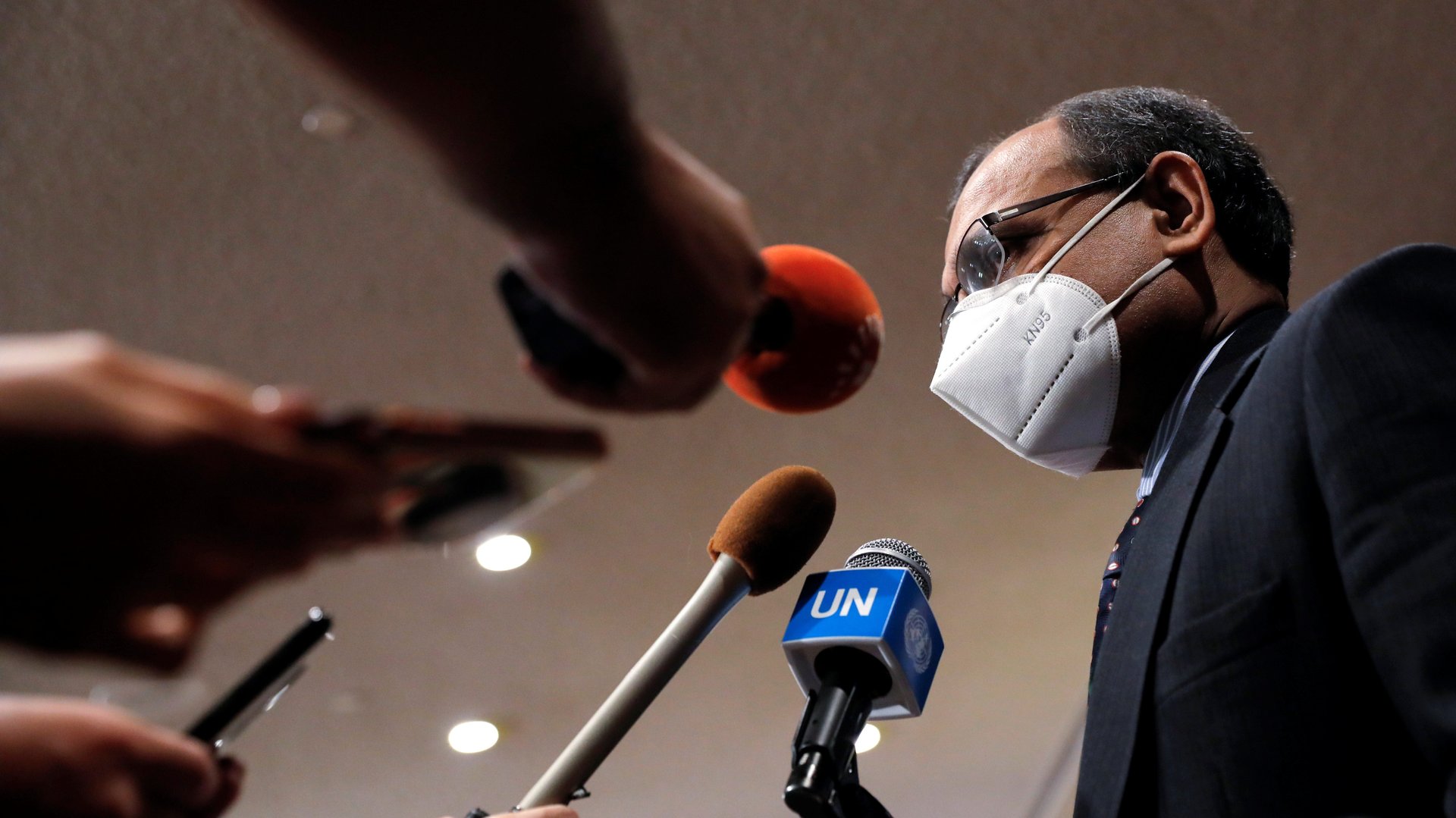Why India isn’t voting against Russia at the UN
India, once again, abstained from voting on the Russia-Ukraine issue at the United Nations yesterday (Feb. 28).


India, once again, abstained from voting on the Russia-Ukraine issue at the United Nations yesterday (Feb. 28).
China and UAE were the other two nations among the 15-member United Nations Security Council (UNSC) to abstain from voting on the subject of holding an emergency meeting of the UN General Assembly in light of Russia’s invasion of Ukraine.
Indian envoy to the UN TS Tirumurti explained the country’s decision as a return to the path of diplomacy, welcoming the Russia-Ukraine dialogue at the Belarusian border.
India has abstained from voting on matters related to Russia thrice within a week, twice at the UNSC alone.
On Feb. 25, the UNSC proposed a resolution that “deplores in the strongest terms” Russia’s “aggression” against Ukraine. India abstained, and Russia vetoed both the votes. India stuck to its “dialogue over aggression” stand as justification. This was a repeat of two such votes in January.
India also chose to excuse itself from voting at the UN Human Rights Commission’s vote in Geneva yesterday (Feb. 28), which called for an urgent debate to investigate the alleged human rights violations in Ukraine. It was among the 13 countries, including Pakistan and the UAE, to abstain.
India’s stance is hardly a surprise, given its chosen middle-of-the-road approach to ties with Moscow and the West, including the US. It continues to urge Russia to de-escalate militarily, both at the UN and through a direct channel between prime minister Narendra Modi and president Vladimir Putin.
India’s stance has much to do with its own interests at the UNSC.
India’s own security concerns
The country has a chequered past at the UNSC, especially on the matter of Kashmir. In 1948, then prime minister Jawaharlal Nehru had approached the UN to recognise and respect India’s territorial integrity in Kashmir. This was done to counter the presence of Pakistani military troops in the region.
At the time, however, the UN instituted the UN Commission for India and Pakistan and resolved to hold a plebiscite in the region. This hurt India’s position and validated Pakistan’s, according to many experts.
“Our position (on Russia and Ukraine) is in our interest,” Asoke Mukerji, a former Indian ambassador and permanent representative to the UN in New York, told ThePrint. “We need to look at history and see what had happened with us back in 1948 when we took the issue of territorial integrity and sovereignty to the UNSC.”
In the same vein, it is also key for India to remember USSR’s stance on Jammu & Kashmir.
“The only P5 (permanent five) country that helped us on some of our most important concerns has been Russia,” Vijay Nambiar, India’s former permanent representative to the UN in New York, told ThePrint. “Russia has been our steady supporter in our national security concerns, particularly with regard to Jammu & Kashmir.”
Russia’s closeness with China, and, increasingly with Pakistan in recent years, however, is something India will be keeping a close eye on.